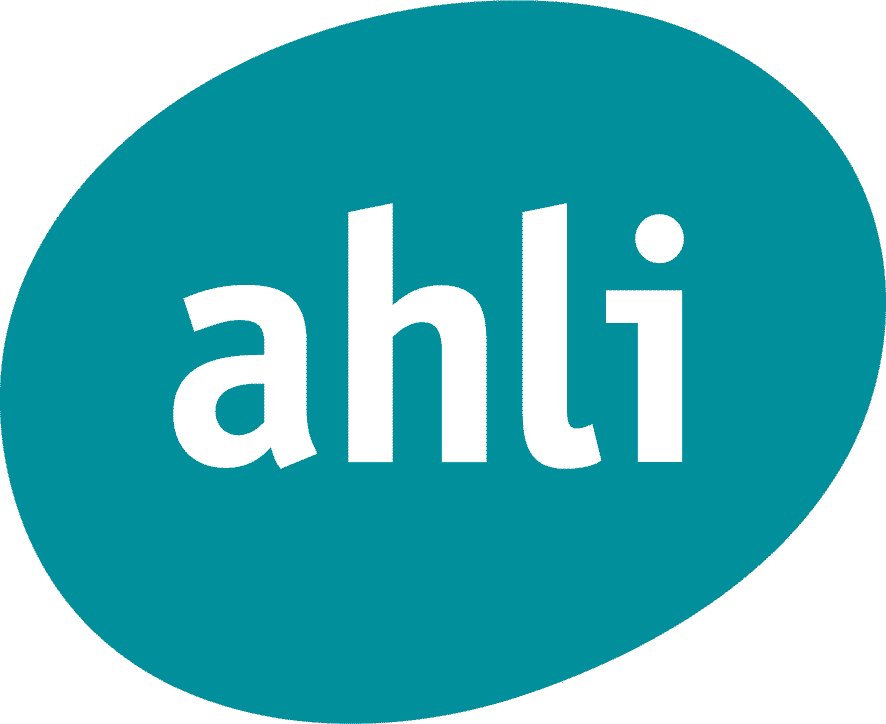Our ESG Performance

Sustainability at Jordan Ahli Bank
For more than sixty-five years of ahli bank’s long history, we have been steadfast in upholding our values, commitments, and environmental and social standards by delivering transformative, meaningful, and measurable sustainability initiatives.
Corporate Governance
Our growth and success have been driven by our strong corporate governance that upholds the principles of fairness, transparency, accountability, and responsibility. Also, good governance bestowed the ability to develop and execute a long term, sustainable strategy that can deliver great value to all stakeholders. We have a diverse expertise within the Board , 38% of the same are independent members who all invested their time and experience to implement and develop governance within ahli Group and its fully owned companies, in order to evolve its ‘governance maturity’, which in turn will translate to great value to all the Bank’s stakeholders.
Global Certifications and Compliance Requirements
We constantly develop, amend, and improve all controls related to our reporting, policies, procedures and systems to ensure complete compliance with all necessary requirements by the Central Bank of Jordan and global standards in line with our belief of banking transparency and security as part of our commitment to our stakeholders. The bank acquired two ISO certification, ISO 27001 – Information Security Management System (ISMS) and ISO 22301 – Business Continuity Management (BCM), along with proper resilience of operations and management.
Economic Impact
We continue to contribute to Jordan’s national growth and prosperity through our revenues and assets. Despite the economic conditions that has prevailed in Jordan over the past years, including the economic impacts of COVID-19 in 2020, ahli bank has seen an improvement in its financial performance in 2021 and 2022. There has been continuous general improvement in this aspect, our net profit after taxes increased by 18.76% in 2022 compared to 2021. Moreover, through our Taqseet Program more than 3.5 million JOD worth of transactions have been processed through the system, supporting more than 60 merchants in 4 months. We also provided financing solutions for our clients in various sectors in addition to maintaining responsible banking practices and responsible investments. We continue to focus on SMEs by increasing our market share, participating in national initiatives that support SMEs and maximizing financial inclusion percentage.
Social Impact
We continue to build a more diverse and inclusive workplace, demonstrate strong corporate governance and social responsibility, which helps us build more resilient and sustainable communities in Jordan. In 2022, we had a total of 1,110 employees and 280 ahli777 employees at the bank. Our female employment rate stood at 39%, which was higher than the banking sector average in Jordan of 35% and was also significantly higher than the national average of about 15%. We were also able to increase our average training hours per employee by about 5% compared to that of 2021. Meanwhile, our volunteering hours in various social programs increased significantly by 356% compared to the previous year, with 1,590 hours. For suppliers, we prioritized more local suppliers this year, in which 92% of them were local – a 5% increase from 2021.
Environmental Impact
Our commitment to the environment is manifested through our efforts to manage climate change impacts by replacing traditional infrastructures with green infrastructures and aiming to significantly reduce our overall carbon footprint.
We aim to manage our resource consumption and rationalize consumption usage across our operations. In 2022, we decreased our paper consumption by 8% from 2021 with 56,440 kg compared to 61,629 kg in 2021. Similarly, we also decreased our energy intensity by 30% with 1,383 from 1,976 in 2021, including our total GHG emissions by 21% with 1,218.152 CO2 equivalent from 1,534.727 CO2-equivalent in the previous year. With this, we are fulfilling our aim of reducing our environmental impact by continuously offering eco-friendly products and services with minimal environmental footprint. Moreover, we are proud to report that the formal design review issued by the US Green Building Council (USGBC) has awarded the design of our new sustainable and green building a score of 62 points and it is with great pride we announce that we have transitioned into the construction phase of this building with a target completion in year 2025.
Towards a Full Digital Environment
We continue to focus on improving our banking services and operations with an emphasis on Customer Centricity, Operational Excellence, and Innovation. This year, through our investments in technology and digitalization, we brought our customers various new products and services that meet their needs to enable banking convenience and ease of access, this includes the launch of the ahli Online Corporate banking, ahli Invest Application, the ahli Mobile Application with new added features and wallet/payment applications. We also implemented the full automation of our invoices through the Invoice Q Platform
Our Economic Performance:
| Financial Performance (JOD)* | 2019 | 2020 | 2021 | 2022 |
|---|---|---|---|---|
| Revenues | 118077369 | 111562255 | 111473490 | 111551027 |
| Total capital | 200655000 | 200655000 | 200655000 | 200655000 |
| Total assets | 2766697353 | 2845997041 | 2953416753 | 3062513293 |
| Total shareholders’ equity | 311683694 | 322329962 | 327719498 | 330347828 |
| Other Expenses | 22358845 | 22112205 | 21989937 | 24702785 |
| Employee Benefits | 40257255 | 37431424 | 35520271 | 37664053 |
| Income tax | 12480370 | 7062374 | 12936342 | 11449589 |
| Capital adequacy ratio (%) | 15.66 | 15.53 | 15.92 | 15.62 |
| Return on equity ratio (%) | 8.55 | 3.31 | 4.38 | 5.14 |
| Loans | 1463693562 | 1469506933 | 1464675116 | 1669710784 |
| Net loans and advances | 1369737583 | 1369633832 | 1357684639 | 1595272646 |
| Total deposits | 2014166666 | 2048212352 | 2165537085 | 2114537225 |
| Ratio of loans to deposits (%) | 72.67 | 71.75 | 67.64 | 79.26 |
| Net profit after taxes | 23722770 | 10439706 | 14230432 | 16899842 |
Our Social Performance:
| Total Workforce | 2019 | 2020 | 2021 | 2022 |
|---|---|---|---|---|
| Total number of employees | 1186 | 1144 | 1084 | 1110 |
| By employment contract | ||||
| Permanent | 1184 | 1142 | 1077 | 1101 |
| Temporary | 2 | 2 | 7 | 9 |
| By employment type | ||||
| Full-time | 1186 | 1144 | 1084 | 1110 |
| Part-time | 0 | 0 | 0 | 0 |
| By gender | ||||
| Female | 467 | 439 | 412 | 437 |
| Male | 719 | 705 | 672 | 673 |
| Nationalization | ||||
| Number of Jordanian employees | 1183 | 1141 | 1080 | 1105 |
| Number of non-Jordanian employees | 3 | 3 | 4 | 5 |
| By job category | ||||
| Senior management | 16 | 16 | 15 | 15 |
| Middle management | 209 | 216 | 198 | 279 |
| Staff | 961 | 912 | 871 | 816 |
| Permanent Employees | ||||
| Total number of permanent employees | 1184 | 1142 | 1077 | 1101 |
| By gender | ||||
| Female | 465 | 437 | 406 | 431 |
| Male | 719 | 705 | 671 | 670 |
| Temporary Employees | ||||
| Total number of temporary employees | 2 | 2 | 7 | 9 |
| By gender | ||||
| Female | 2 | 2 | 6 | 6 |
| Male | 0 | 0 | 1 | 3 |
| Workers who are not employees (ahli777 employees) | ||||
| Total number of workers who are not employees and whose work is controlled by the organization | 362 | 280 | ||
| Employees covered by collective bargaining agreements | ||||
| Total number of employees covered by collective bargaining agreements | 972 | 931 | 805 | 719 |
| Percentage of total employees covered by collective bargaining agreements (%) | 82 | 81 | 74 | 65 |
| New Hires | ||||
| Total number of new hires | 125 | 56 | 105 | 195 |
| By gender | ||||
| Female | 55 | 14 | 37 | 84 |
| Male | 70 | 42 | 68 | 111 |
| By age | ||||
| Under 30 | 97 | 43 | 82 | 126 |
| Between 30 and 50 | 28 | 11 | 22 | 58 |
| 50+ | 0 | 2 | 1 | 1 |
| Turnover | ||||
| Turnover rate (%) | 11.4 | 8.2 | 15.5 | 15.14 |
| Total turnover | 135 | 94 | 168 | 168 |
| By gender | ||||
| Female | 61 | 39 | 64 | 58 |
| Male | 74 | 55 | 104 | 110 |
| By age | ||||
| Under 30 | 58 | 31 | 59 | 68 |
| Between 30 and 50 | 70 | 54 | 95 | 90 |
| 50+ | 7 | 9 | 14 | 10 |
| Parental Leave | ||||
| Number of employees who are entitled to parental leave | ||||
| Female | 467 | 439 | 412 | 437 |
| Male | 719 | 705 | 672 | 673 |
| Number of employees who took parental leave | ||||
| Female | 26 | 23 | 32 | 26 |
| Male | 30 | 34 | 28 | 28 |
| Returnees from parental leave | ||||
| Female | 26 | 23 | 27 | 25 |
| Male | 30 | 29 | 28 | 28 |
| Returnees from parental leave who were still working for the bank 12 months later | ||||
| Female | 26 | 21 | 31 | 24 |
| Male | 30 | 29 | 27 | 28 |
| Percentage of Individuals within the Organization’s Leadership | ||||
| By age | ||||
| Under 30 | 0 | 0 | 0 | 0 |
| Between 30 and 50 | 0.84 | 0.87 | 0.92 | 0.81 |
| 50+ | 0.51 | 0.52 | 0.46 | 0.54 |
| By gender | ||||
| Female | 0.17 | 0.17 | 0.09 | 0.09 |
| Male | 1.18 | 1.22 | 1.29 | 1.26 |
| By nationality | ||||
| Jordanian | 1.26 | 1.31 | 1.29 | 1.26 |
| Percentage of Employees per Employee Category in each of the following Diversity Categories | ||||
| By age | ||||
| Under 30 | ||||
| Senior management | 0 | 0 | 0 | 0 |
| Middle management | 0.84 | 0.52 | 0.37 | 0.27 |
| Staff | 31.32 | 28.41 | 26.48 | 28.2 |
| Between 30 and 50 | ||||
| Senior management | 0.84 | 0.87 | 0.92 | 0.811 |
| Middle management | 15.6 | 17.05 | 16.7 | 23.24 |
| Staff | 47.81 | 49.3 | 52.21 | 43.69 |
| 50+ | ||||
| Senior management | 0.51 | 0.52 | 0.46 | 0.54 |
| Middle management | 1.18 | 1.31 | 1.2 | 1.62 |
| Staff | 2.02 | 2.01 | 1.66 | 1.62 |
| By gender | ||||
| Female | ||||
| Senior management | 0.17 | 0.17 | 0.09 | 0.09 |
| Middle management | 4.55 | 5.07 | 4.89 | 6.31 |
| Staff | 34.65 | 33.13 | 33.03 | 32.97 |
| Male | ||||
| Senior management | 1.18 | 1.22 | 1.29 | 1.26 |
| Middle management | 13.07 | 13.81 | 13.38 | 18.83 |
| Staff | 46.37 | 46.59 | 42.62 | 40.54 |
| By nationality | ||||
| Jordanian | ||||
| Senior management | 1.26 | 1.31 | 1.29 | 1.26 |
| Middle management | 17.54 | 18.79 | 18.17 | 25.05 |
| Staff | 80.94 | 79.63 | 80.17 | 73.24 |
| Non-Jordanian | ||||
| Senior management | 0.08 | 0.09 | 0.09 | 0.09 |
| Middle management | 0.08 | 0.09 | 0.09 | 0.09 |
| Staff | 0.08 | 0.09 | 0.18 | 0.27 |
| Female Employment | ||||
| Total number of female employees | 467 | 439 | 412 | 437 |
| Number of female employees in middle management | 54 | 58 | 53 | 70 |
| Number of female employees in senior management | 2 | 2 | 1 | 1 |
| Ratio of Basic Salary and Remuneration of Women to Men | ||||
| Senior management | 0.1 | 0.1 | 0.03 | 0.03 |
| Middle management | 0.27 | 0.3 | 0.3 | 0.29 |
| Staff | 0.67 | 0.65 | 0.7 | 0.76 |
| Training* | ||||
| Average hours of training per employee** | 9.5 | 3.9 | 3.6 | 23.2 |
| By gender | ||||
| Female | 8.3 | 3.6 | 3.6 | 23.8 |
| Male | 10.5 | 4.1 | 3.7 | 22.7 |
| By job category | ||||
| Senior management | 13.5 | 3.5 | 3.2 | 34.5 |
| Middle management | 10.7 | 4.2 | 3.1 | 23.9 |
| Staff | 7.4 | 3.7 | 4.4 | 22.8 |
| Performance Review | ||||
| Percentage of total staff who received regular review of performance | 100 | 100 | 100 | 100 |
| Health and Safety | ||||
| Percentage of total labor force represented in official health and safety committees | 3 | 7 | 7 | 12 |
| Internal Volunteering Program | ||||
| Volunteering hours | 1368 | 268 | 349 | 1590 |
| Number of volunteers | 432 | 173 | 163 | 411 |
| Number of events | 25 | 12 | 21 | 25 |
| Procurement | ||||
| Number of suppliers | 297 | 150 | 175 | 185 |
| Number of local suppliers | 200 | 130 | 160 | 170 |
| Total purchases (millions JOD) | 25 | 16 | 28 | 35 |
| Total expenditure on purchases from local suppliers (millions JOD) | 20 | 12 | 22 | 32 |
| Percentage of expenditure on local suppliers | 80 | 75 | 80 | 91 |
Our Environmental Performance:
| Energy Consumption | 2019 | 2020 | 2021 | 2022 |
|---|---|---|---|---|
| Electricity Consumption (kWh) | 2129046 | 2053522 | 2142319 | 1982557 |
| Electricity Consumption (GJ) | 7664.57 | 7392.679 | 7712.35 | 7137.21 |
| Non-renewable Energy Consumption – Diesel and Fuel (Liters) | 33475 | 25062 | 31677 | 36957 |
| Non-renewable Energy Consumption – Diesel and Fuel (GJ) | 1217.78 | 859.06 | 1078.06 | 1274.15 |
| Total Heat Consumption (Liters) | 22128 | 36500 | 36264 | 31614 |
| Energy Intensity* | 1795.14 | 1796 | 1976 | 1383 |
| GHG Emissions | ||||
| Direct GHG Emissions – Scope 1 (CO2 equivalent) | 81.901 | 80.49 | 83.97 | 72.62 |
| Indirect GHG Emissions – Scope 2 (CO2 equivalent) | 1441.769 | 1390.624 | 1450.757 | 1145.532 |
| Total GHG Emissions – Scope 1 and Scope 2 (CO2 equivalent) | 1523.67 | 1471.114 | 1534.727 | 1218.152 |
| Paper | ||||
| Paper Consumption (kg) | 80411 | 57672 | 61629 | 56440 |



